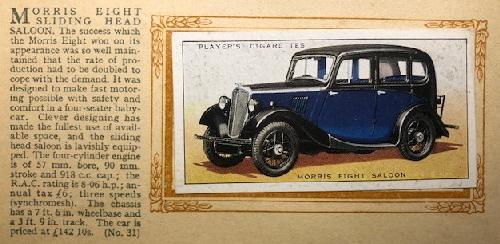a case of poor judgement
Edward, ‘Ted’, was not an intentional rebel but was known in family and social circles as a bit of a character. With a twinkle in his eye he had a limited interest in the rules framed by his early Catholic education and would often ‘sail close to the wind’ in life. The relatively unsophisticated and limited rules and regulations within the commercial road haulage industry were nonetheless still broken from time to time. This would not typically be deliberate, but more incidental to achieving a greater purpose - usually saving money. The wartime red diesel taxation episode being a good example.
Whether he was, or was not, fully aware of the source of the ‘blitzed cars’ will never be known. However, what is clear is that he almost certainly knew that altering the identification characteristics of vehicles would have been illegal. Even in the early days of motoring, and the 1940s were not early days, only the state could authorise changing index number plates, and removing chassis numbers was against the law. As can also be seen in the judge’s summing-up, Edward’s case itself confirmed the illegality of the practice. Pleading guilty to a lesser offence, ‘fencing’ stolen cars, would have been a sensible and pragmatic choice. Perhaps he thought that the law would have shown some leniency in sentencing, although the ‘three years penal servitude’ Edward did receive suggests the judge remained circumspect about the extent of his guilt.


Two types of car involved in the case
Austin 10
Morris 8
Early Wills Cigarette card
Vintage car rally photo
Youtube share: https://www.youtube.com/watch?v=yGC81DUX4mw
Youtube share: https://www.youtube.com/watch?v=MyCAR7ANbvk